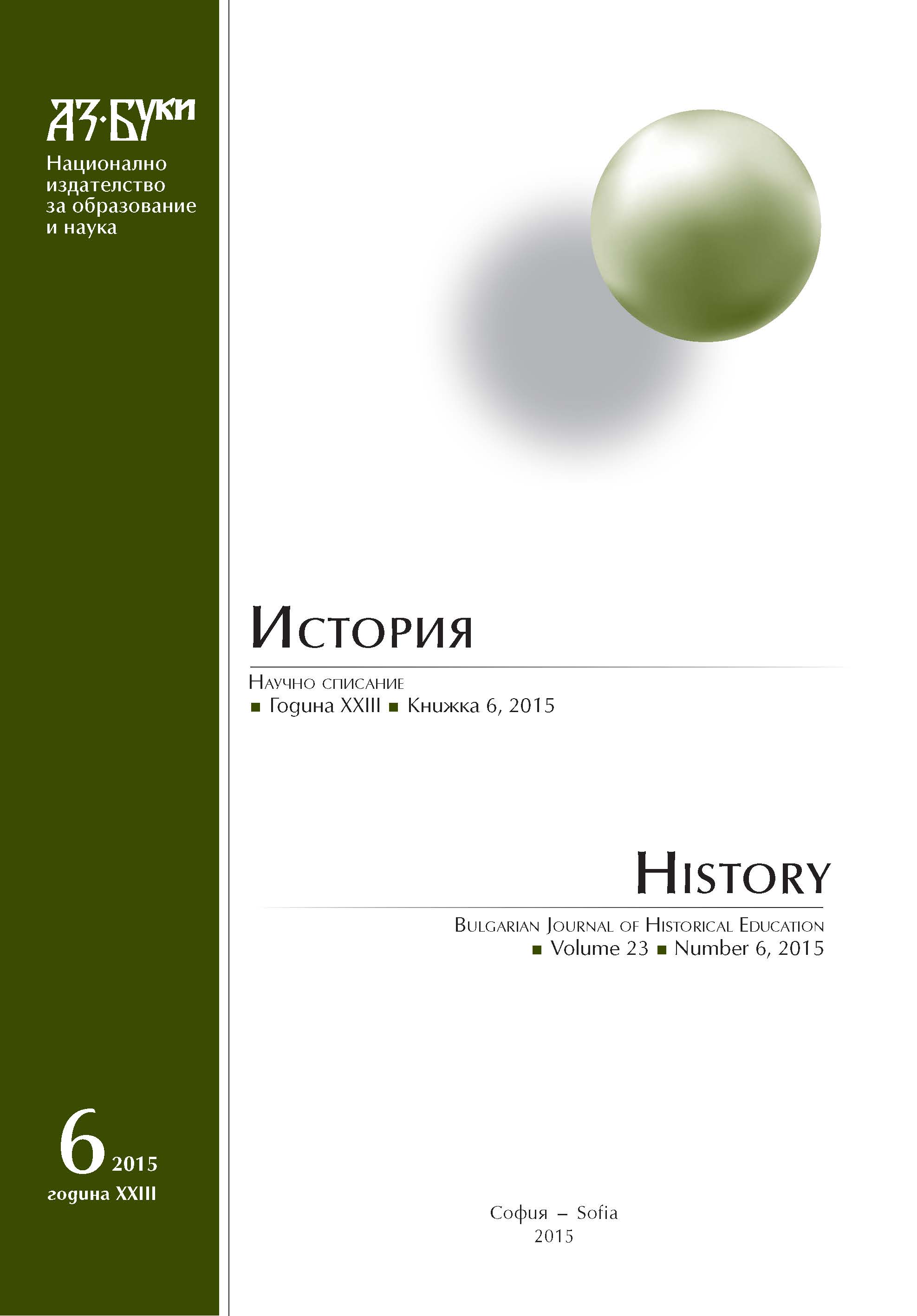
We kindly inform you that, as long as the subject affiliation of our 300.000+ articles is in progress, you might get unsufficient or no results on your third level or second level search. In this case, please broaden your search criteria.

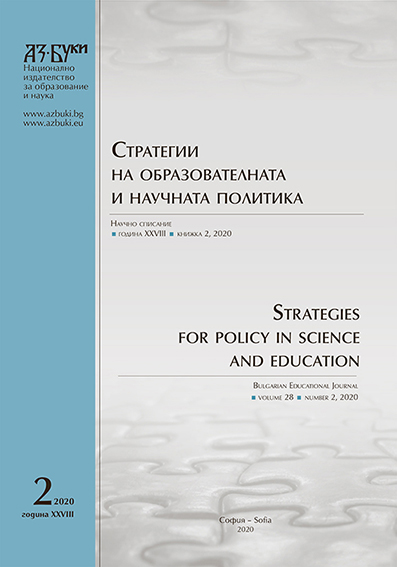
University museums in Bulgarian higher education institutions are described and analyzed in the context of the current educational and cultural trends. The important features of this specific academic units are highlighted with specification of some distinguishing museum collections, which work fruitfully inside and outside of their own university space. Administrative improvement and more active promotion are recommended as key paths for a more positive prospect ahead of the whole 27 Bulgarian university museums. In the article are involved data, extracted from the cited sources and from the official internet sites of the mentioned higher education institutions.
More...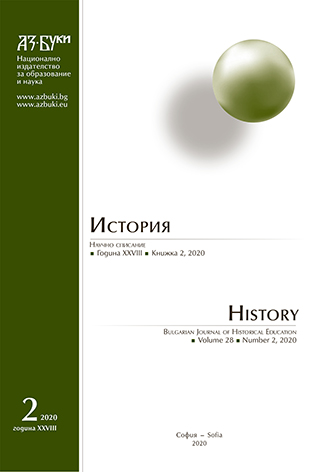
The purpose of this article is revealing the conditions and prerequisites for the “birth” of the entrepreneurial class in Sopot, Karlovo and Kalofer during the 18th-19th centuries. The main conclusion is that the combination of a favorable external environment and appropriate personal qualities make possible the appearance of people with enterprising spirit. In other words, Bulgarian Revival entrepreneurs from Sopot, Karlovo and Kalofer are born, but they are also made through the accumulated experience and knowledge.
More...
In this article, we aim to reveal some of Hristo Popkonstantinov's rich literary heritage, as well as biographical details about him. We study archival materials and information in literary resources. The scientific methods used are: the historical-chronological as well as the specific methods of archivism. The depth of the author's searches in the novel “The Physics of Sorrow” by contemporary Bulgarian writer Georgi Gospodinov, intertwining the past and present in a special and successful way, led us to think that we could connect our scientific study of one of the most prominent Rhodopes with the topic of the maze and the choice that must inevitably be made. In the complicate labyrinth of Bulgarian post-liberation reality,Hristo Popkonstantinov masterfully overcomes the confusion of many possible exits through his sense of the right direction – namely tireless and stubborn self education,preservation of the Bulgarian historical and folk heritage and respect to the Motherland. Hristo Popkonstantinov stands out as the first Rhodope writer and public figure of national importance.
More...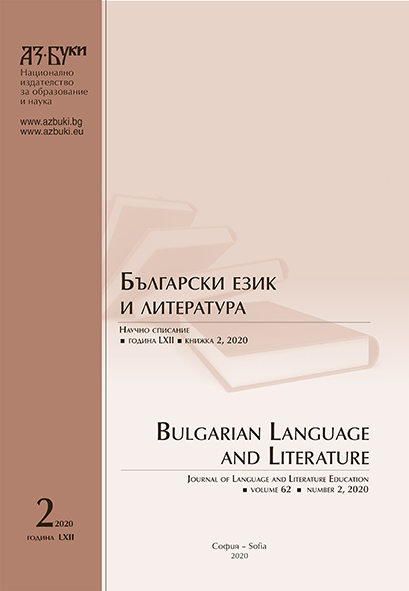
Melitopol is a university town, a scientific, educational and methodical center for Bulgarian studies in the North Azov Sea region, where the Tavrian Bulgarians live compactly. The Bogdan Khmelnitski university Center for Bulgarian Studies was created 12 years ago after the establishment of the Sector in Bulgarian language, literature and culture. The educational, scientific and cultural activities of the Center for Bulgarian studies are closely related to the unique multiethnic diversity of the city, in which the Bulgarian community is third in number. The educational policy in Ukraine is dynamic and the Bulgarian experience is important.
More...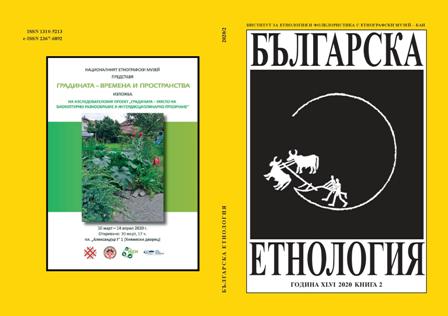
With its fifth edition in 2019, the festival ‘Na Megdana na Drugata Bulgaria’ (At the Public Square and Gathering Point of the Other Bulgaria) establishes itself as one of the main events for Bulgarian emigrants in Europe. It gathers folklore enthusiasts and besides a dancing stage, it is a ground for new friendships, meetings, and exchange of expertise. The article examines the festival as a place of contact of informal migration-based groups of interest and as a trigger for developing an imagined community around symbols such as origin, clothes, music, dance and food. The ‘megdan’ is considered a community centre existing mainly in people’s mind but not as a geographic location. The article searches for the link between the event and the ways of preserving and transmitting cultural heritage in migration. The study was conducted in three stages: a preliminary online survey; fieldwork in the period May 10 – 12, 2019 in La Nucia, Spain; an additional digital data gathering.
More...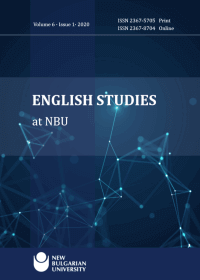
This article comparatively analyses Marguerite Duras’ India Cycle and Ahmed Ali’s Twilight in Delhi. A Mirror Principle centres on ‘emptiness’, synthesising elements of Marxism and Buddhism. A new optic is created for understanding 1930s Indian nationalism, including Dalit and national leader Ambedkar, Tagorian “composite culture”, Mohammed Iqbal, and Islam and gender in northern India. The Mirror Principle juxtaposes Heideggerian ‘repetition’ and Marxian ‘dialectics’ as divergent anti-colonial paths. Duras and A li a re l inked b y a c ommon P roustian p roblematic o f m emory a nd e phemerality. They revolutionize the Proustian tradition to create a new literary genre in oneiric socialism. The article analyses trauma, in the French Resistance and the 1857 rebellion, and literary reconstructions of traditional roots in their wake, with differing nation-making ramifications.
More...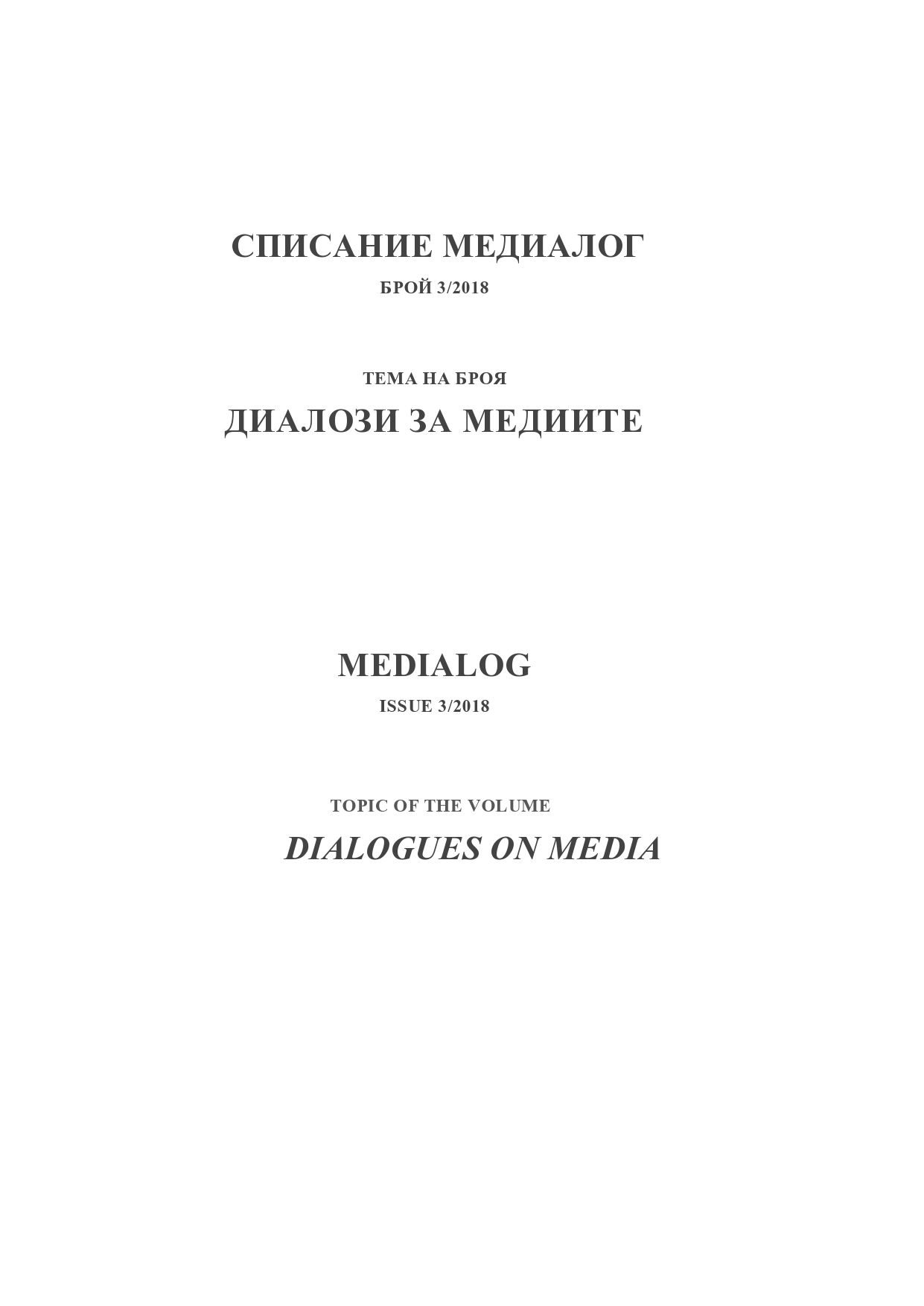
The text presented is dealing with the current transformations of the Europeanised public spheres. The author argues that depending on the level of presence of the current European debates in the national public sphere, we can highlight centre and periphery and in parallel with the process of Europeanisation, the opposite process is also taking place – a process of peripheralization. Besides the theoretical arguments, the book presents the results of a comparative analysis of 2014 European elections` media coverage in the most popular newspaper websites in Bulgaria and the UK (February-June 2014). 3356 publications from 8 media outlets (The Daily Telegraph, The Guardian, The Independent, Daily Mail, 24chasa.bg, Dnevnik.bg, Trud.bg and Segabg.com) have been coded and analyzed.
More...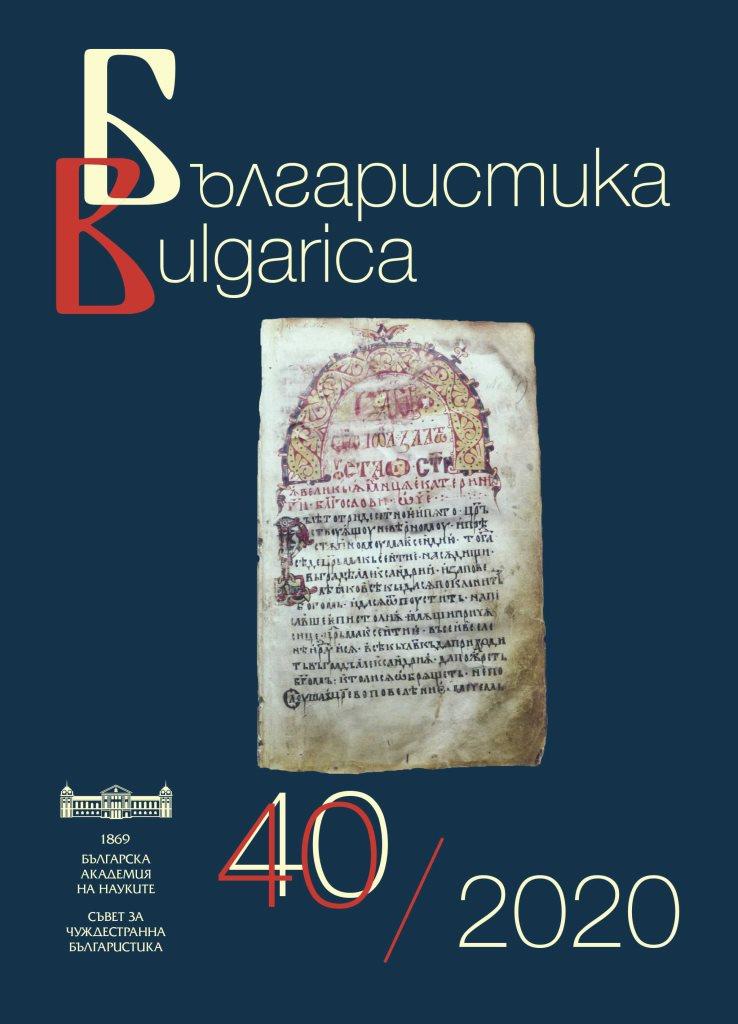
Content of the main Bulgarian scientific journals for the current year in linguistics, literature, history, folklore, ethnography, archaeology and art studies
More...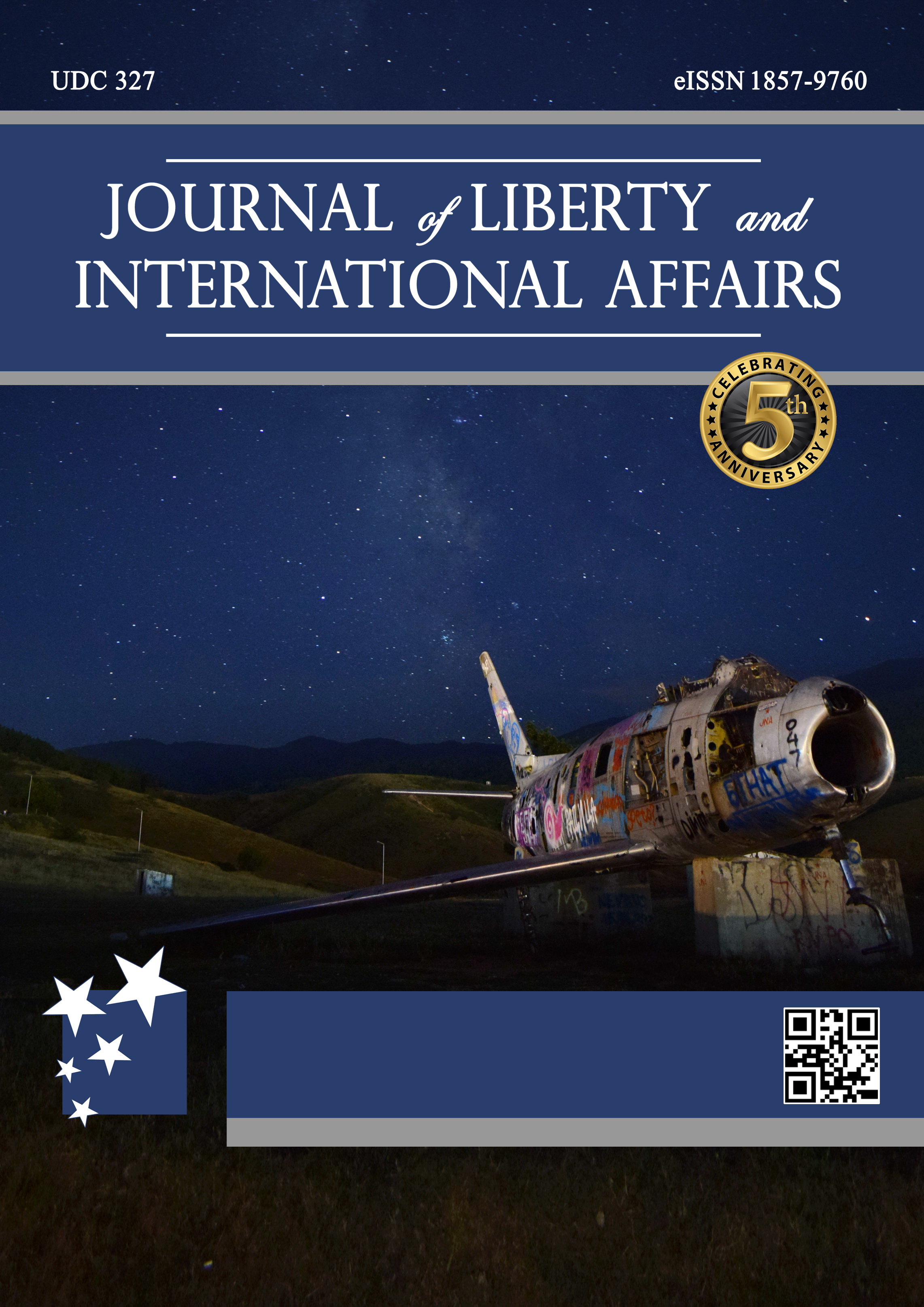
This paper aims to bring to the public one of the most important moments in the history of modern times of Albania. After the Albanian independence on 28 November 1912 and international recognition of Albanian state on 29 July 1913, in 1919-1920, many national and international events unraveled which initially posed a real danger for Albania to become an independent state. The Paris Peace Conference, organized after the First World War by the Great Powers which win the war, and in which 27 winning states took part, became the real world center of that time. The Albanian point of view was headed directly at this Conference, with the hope to gain its independence and to win the right of self determination for its people. The main issues of the Conference were: border correction, especially in the southern part of Albania, relations between the Balkan states regarding Albania, the position of Italy, Kingdom of Serbs, Croats and Slovenes, and the position of Greece over Albania, and the real threat of secret pact during the First World War and the new role of American President, Woodrow Wilson. This paper also aims to bring the attitude of the Albanian delegation at the Paris Peace Conference and the position of Italy, France, Great Britain and Greece.
More...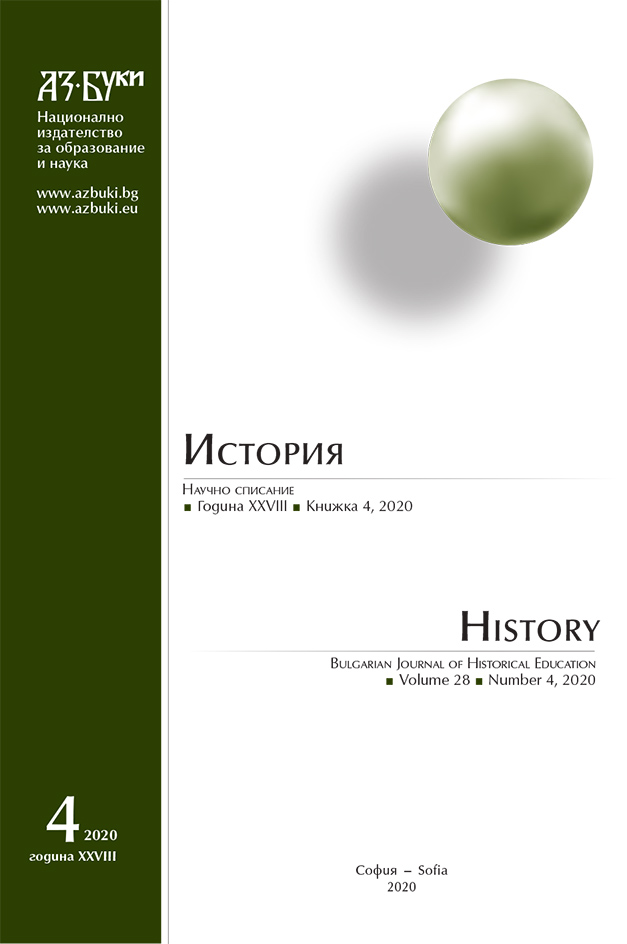
The article analyzes the historical surveys concerning the elеctoral regulations and the competition between the parties at the parliamentary elections in Bulgaria from the Liberation (1878) to the WW2. The reasons of the lack of scientific interest in the years of the communist rule are pointed out. The revival of the competitive elections since 1990 brought about for the growth of the surveys concerning the Bulgarian electoral past. There are some gaps, however. Yet many issues are unresearched. The article analyzes the historical surveys concerning the electoral regulations and the competition between the parties at the parliamentary elections in Bulgaria from the Liberation (1878) to the WW2. The reasons of the lack of scientific interest in the years of the communist rule are pointed out. The revival of the competitive elections since 1990 brought about for the growth of the surveys concerning the Bulgarian electoral past. There are some gaps, however. Yet many issues are unresearched.
More...
This article studies Greek European policies and the country's strife for European integration, the negotiations and the obstacles it goes through from 1955 until the signing of the Treaty of Accession to the European Community on 28 May 1979. The role of Konstantinos Karamanlis and the geopolitical situation at the moment are identified as major factors in Greece becoming the first Balkan country to join the EU community at the very beginning of its expansion. The article also examines the attitudes of the Greek political parties and the reactions of the Greek society throughout the various stages of the European accession policies of the ruling government.
More...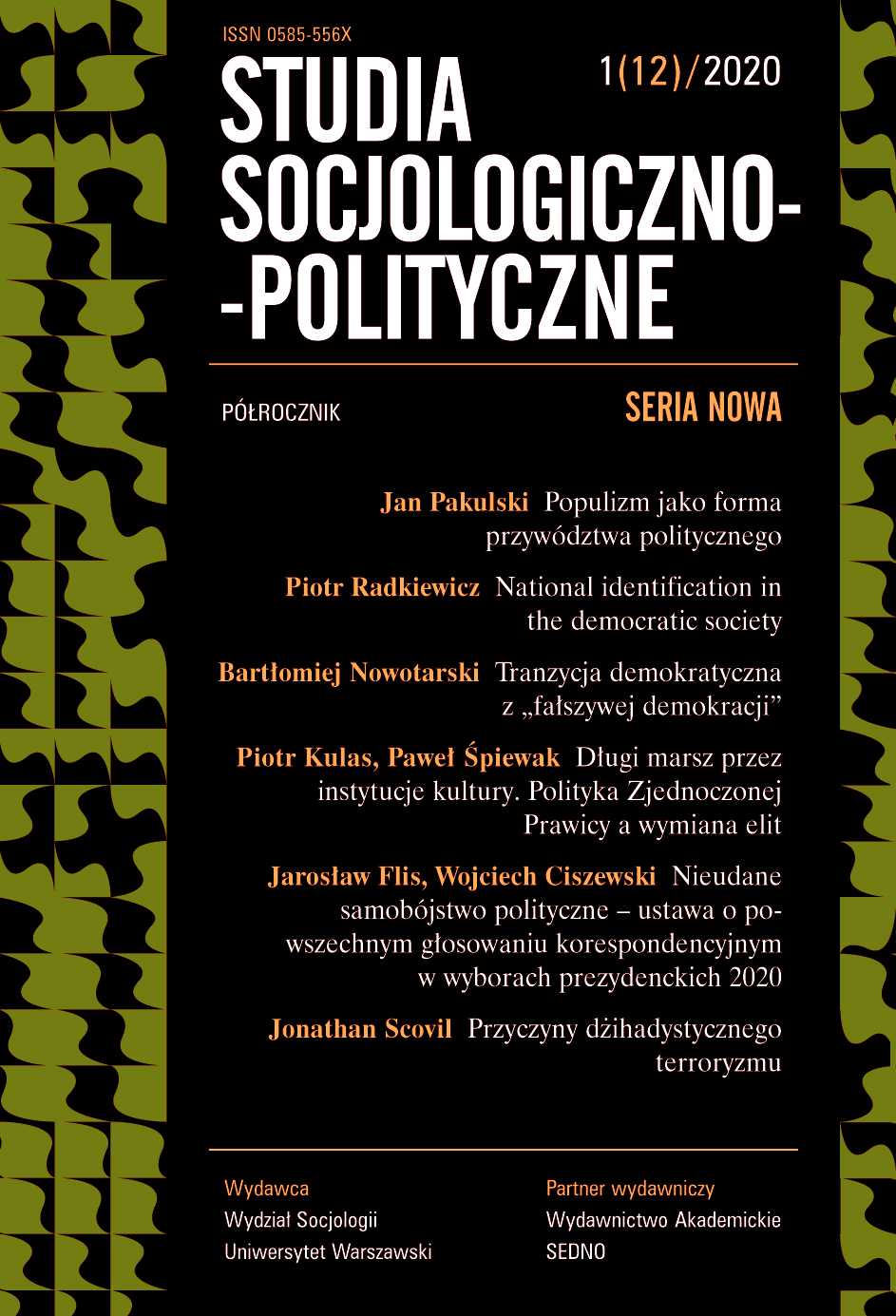
In a contemporary political sociology, experiencing a renaissance in political leadership studies, the populism – defined as a specific type of anti-establishment leadership – is quite well known not only from current „rises”, but also from former cyclic „tidal waves”. Even if there are visible parallels to former waves of populist politics, few socio-political analyses of the current „third wave” sweeping across Europe and the US benefit from the theoretical body of researches of previous waves. The current approach focuses on a shallow theoretical-historical approach to populism as a sui generis novum, as a critical backlash to contemporary development trends (ie. globalism, centralized government, neo-liberal politics, etc.). Thus this paper aims at reminding three important analyses relating to three consecutive waves of populism. All three point at populism as a manifestation of democratic trends and focus attention on leadership groups. Alexis de Tocqueville viewed populist campaigns of Louis Napoleon in France as manifestations of a „despotic democracy”. Max Weber judged European populisms he witnessed as manifestations of a „plebiscitary democracy”. Contemporary neo-elitists focus their attention both on leaders and on the structure of leadership groups as well as on relations between leaders and their „electorate”. Such leadership focused perspective is a necessary addendum to the research on contemporary populism.
More...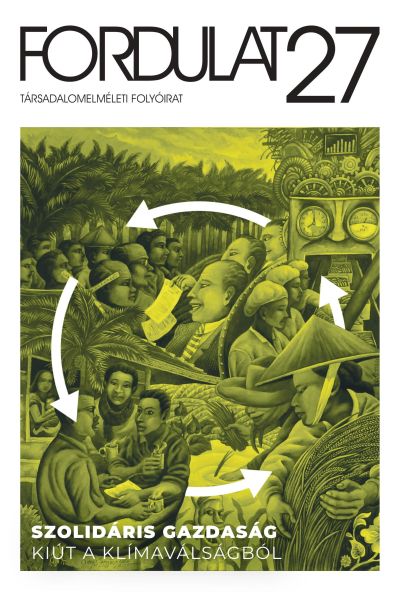
The 27th issue of the Fordulat maps the possibilities of a social-solidarity economy with a special focus on the Eastern European post-socialist conditions.
More...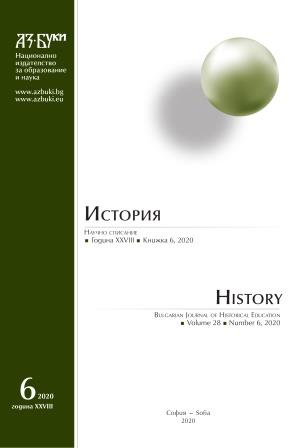
The article presents an unknown letter from the epistolary heritage of the Bogoridi family, in French in handwritten original, sent by Emanuel Bogoridi to his uncle Alexander Bogoridi, dated June 12, 1879, currently stored in the collection of the Bulgarian Historical Archive at the National Library “Ivan Vazov” – Plovdiv. The source and archeographic aspects of the newly discovered document are examined. In terms of content, the background of the idea of founding a museum, a library, an archive and a university in Eastern Rumelia and the involvement of one of the most famous European Slavic scholars in the person of Konstantin Irechek for this cause are presented. By publishing the letter in Bulgarian for the first time, it is included in scientific circulation.
More...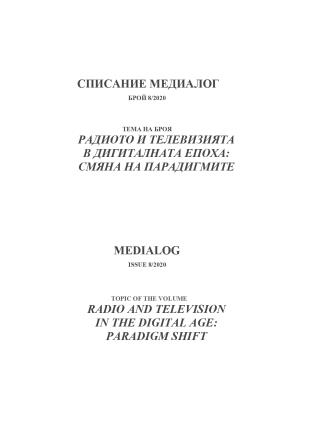
The study focuses on part of the submerged heritage under the waters of several dams in Bulgaria (Ovcharitsa, Rozov Kladenets and Tsonevo). Popular folk singers (Stefka Sabotinova and Penka Pavlova) and singing groups and local singers („Sminana Kitka“, Silvia Dimitrova), who keep songs from the sunken villages, are presented. The focus is on research and knowledge of folklore as a pillar of memory, in the case of the village of Asparuhovo, near and under the waters of Tsonevo Dam. Emphasis is placed on the role of various media and especially digital new media spaces for the „emergence” of the traditional song heritage from the villages left at the bottom of various dams.
More...
Two decades after the publication of the Green Paper on the convergence (1997), radio and television are not only creating and disseminating more and more digital content through digital technologies but are striving for an increasingly integrated online presence. Along with search engines, internet platforms have become an important intermediary between media service providers and audiences whose habits have changed dramatically in the second decade of the 21st century. Broadcast media (BM) have no choice but to be where the users of media content are - content of different quality, origin, purpose, logic of distribution. At the same time, audiences are overwhelmed with mis- and disinformation, which often comes from fake pages and profiles posing as legitimate media organizations, and set against trustworthy media and journalists from public figures. This creates an information crisis, which can be counteracted both by legislative measures and by empowering the audience with media literacy. And while the implementation of educational reform is a slow process, the BM, which still have the largest audiences and are most trusted, can play an essential role in increasing the media literacy of citizens. A function of great public importance, at the same time entirely in their interest.
More...
For the first time the Bulgarian Radio and Television Law include provisions related to video sharing platforms. Platforms are a new type of intermediary. Do we know enough about how platforms influence global social and political processes? Internet companies contribute to democratization of access to knowledge and culture. But when the platform is the message, media ecosystems no longer function as we know it. In the time of global platforms, competition is limited. Platforms negatively affect traditional business models of the creative industries and the media, allow tech giants to gain enormous economic power based on capitalization of clients data, influence global social and political processes and spread disinformation and illegal content. What did the revision of the Audiovisual Media Services Directive (2018) provide for and what can be expected from the next acts of the legislators?
More...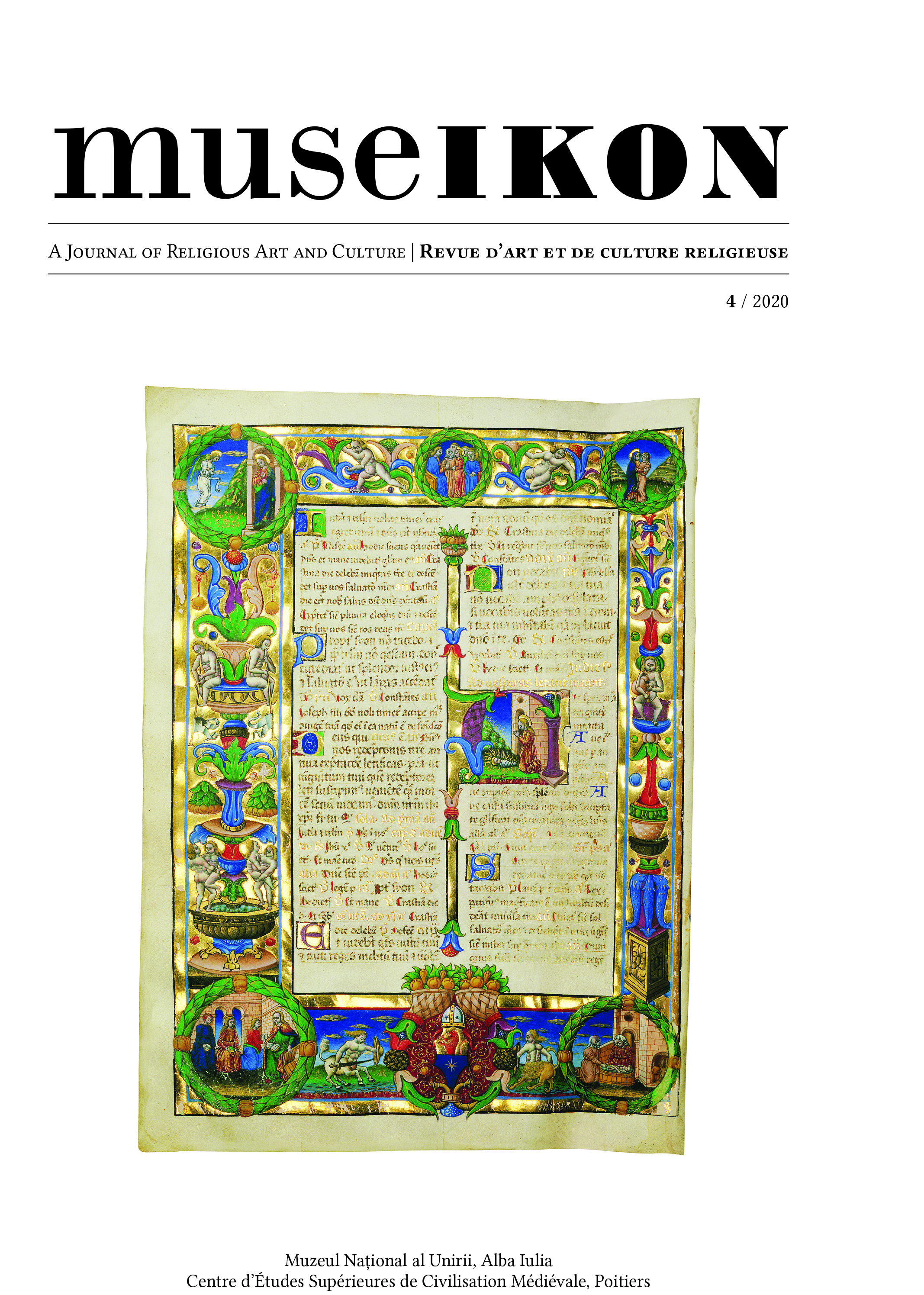
Dès le milieu du XXe siècle, les chercheurs bulgares s’intéressent à l’étude des œuvres d’art religieux russe qui sont arrivées dans l’aire culturelle bulgare; mais ces études n’ont jamais été menées de manière intensive. Les futures approches devront collecter, cataloguer et étudier les collections plus importantes d’icônes, d’estampes et d’objets russes de culte, en rassemblant toutes les informations nécessaires qui concernent les modalités d’acqui- sition de ces objets, leurs donateurs et leurs histoires individuelles. Une attention particulière devra être accordée aux peintres russes qui ont vécu en Bulgarie, ainsi qu’aux Bulgares qui ont étudié les arts en Russie, sachant que ces derniers ont peint des icônes après le retour en Bulgarie. L’influence de l’art orthodoxe russe sur les sujets abordés et les styles utilisés dans l’art bulgare pourra compléter ce panorama. La présente étude se propose de faire le bilan des recherches en cours.
More...
L’étude examine les raisons pour lesquelles les icônes russes, ou imitant un style russe, sont devenues des objets à la mode, commercialisés en Grèce du milieu du XIXe au début du XXe siècle. Elle met ainsi en lumière un phénomène social : la diffusion et la popularité des icônes russes dans ce pays, mais aussi au Mont Athos – une région considérée comme étant le ‘gardien’ de la tradition orthodoxe et de l’authenticité qui faisait encore partie de l’Empire O1oman pendant l’époque en question. Les conséquences de ce1e circulation sont également analysées. Ce phénomène culturel a mené à une banalisation du commerce des icônes et à une confusion croissante entre le domaine de la spiritualité et celui des transactions économiques. La production d’icônes émerge donc comme une arène d’intérêts concurrents; ce qui révèle l’asymétrie de l’influence que la Grèce (un état récemment fondé et économiquement instable) et l’Empire russe exerçaient dans le monde orthodoxe.
More...